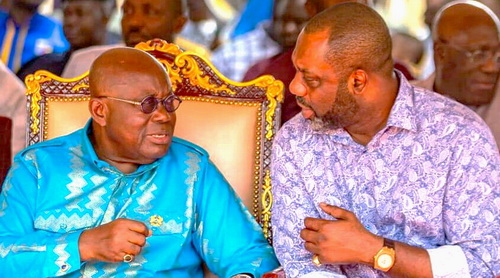Dr. Matthew Opoku Prempeh, the running mate for the New Patriotic Party (NPP), has highlighted the significant achievements of Ghana’s Free Senior High School (SHS) policy, emphasizing its transformative effect on educational access and equity.
Speaking at the University of Memphis in the United States on Friday (19 October), Dr. Prempeh, popularly known as NAPO, pointed out that the initiative has greatly improved educational outcomes, particularly for underprivileged students, and dispelled claims that it has negatively impacted the quality of education.
As the former Minister of Education who oversaw the policy’s implementation in 2017, NAPO asserted that the Free SHS program has enhanced academic performance and reduced educational inequality across the nation.
He noted that the initiative has allowed more students to pursue secondary education without the financial burdens that previously hindered many Ghanaian families.
Dr. Prempeh also underscored the long-term advantages of the Free SHS policy, describing it as a crucial investment in Ghana’s future that helps cultivate a well-educated and skilled workforce essential for national development.
“It is important to state that a cursory analysis of core subject performance from 2015 to 2023 points to a significant improvement in the past five years. For the 2022- and 2023-year groups, for example, more than 60% of candidates obtained A1-C6 in all core subjects, which are the qualification grades required for admission into a tertiary institution in Ghana.
“In fact, the 2023 results in this context are the best in nine years. This clearly refutes the argument by some naysayers that the Free Senior High School Policy was meant to compromise quality education.
“The equity component of the Free SHS program has been crucial. Beyond removing financial barriers, we actively ensured that children from disadvantaged backgrounds could access our top schools. This led to the introduction of the 30% equity policy, reserving 30% of spaces in top schools for children from public basic schools, who often come from deprived backgrounds but had performed well in their final junior high school exams (BECE), considering their backgrounds and other challenges within their study environment.
“This affirmative action policy has demonstrated that many such children can excel in elite schools when given a level playing field, showcasing the potential of all our children if given equal opportunities.
“The discussion on gender imbalance does not even arise anymore, as the enrolment data is now reflective of our national population dynamics, with gender parity achieved,” he stated. – AsaaseNewsRoom


Comments are closed.